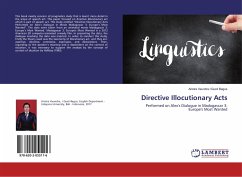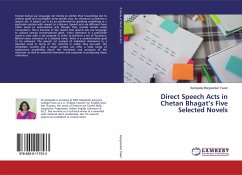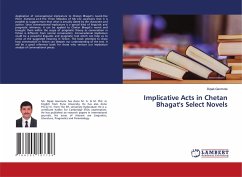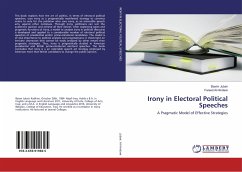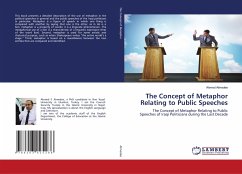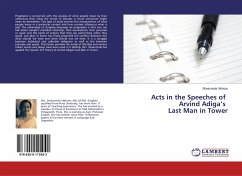
Acts in the Speeches of Arvind Adiga's Last Man in Tower
Versandkostenfrei!
Versandfertig in 6-10 Tagen
36,99 €
inkl. MwSt.

PAYBACK Punkte
18 °P sammeln!
Pragmatics is concerned with the analysis of what people mean by their utterances than what the words or phrases in those utterances might mean by themselves. This type of study involves the interpretation of what people mean in a particular context and how context influences what is said. The advantage of studying language via pragmatics is that one can talk about people's intended meanings, their assumptions, their purposes or goals and the kinds of actions that they are performing when they speak. Last Man in Tower has finely presented the conflicts between the what should we have and what ...
Pragmatics is concerned with the analysis of what people mean by their utterances than what the words or phrases in those utterances might mean by themselves. This type of study involves the interpretation of what people mean in a particular context and how context influences what is said. The advantage of studying language via pragmatics is that one can talk about people's intended meanings, their assumptions, their purposes or goals and the kinds of actions that they are performing when they speak. Last Man in Tower has finely presented the conflicts between the what should we have and what should not we have. It is a struggle between individual and collective willpower as well as the between principle and greed. This fiction provides the locale of Mumbai and various Indian words and slangs have been used in it skilfully. Mrs. Shakuntala has applied The Speech Act Theory to Arvind Adiga's Last Man in Tower.



